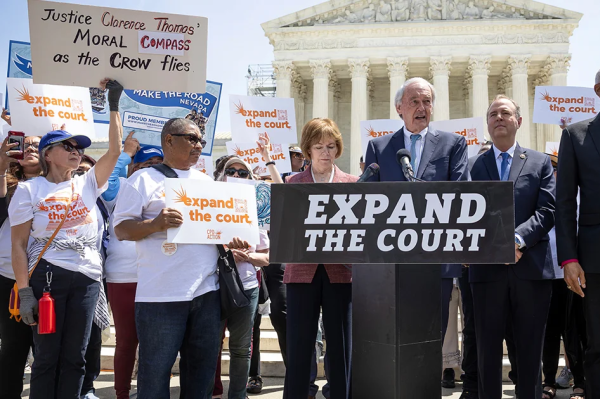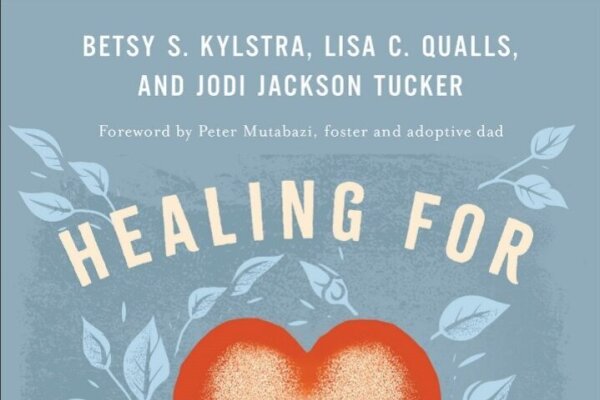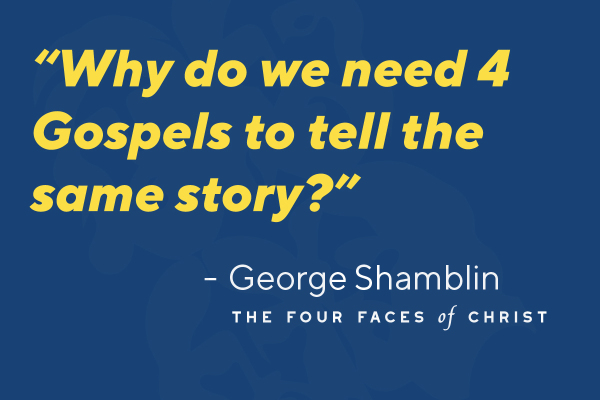Why Is It Controversial to Do Good Works for the ‘Least of These’?

Like most Christians, I have a few favorite Bible verses that never fail to move me. For instance, no matter how many times I read 2 Corinthians 5:20—“We are therefore Christ’s ambassadors, as though God were making his appeal through us”—it thrills me each time.
On the flip side, there are a few Scriptures that challenge me deeply. One of them is Matthew 25:31-46, “The Sheep and the Goats,” describing what will transpire on the day of final judgment. Jesus’ words, “Depart from me, you cursed, into the eternal fire,” always send a chill down my spine.
It was during the last few days of Jesus’ life that he spoke the penetrating words captured in Matthew 25:31-46. While addressing the disciples on the Mount of Olives—a richly significant place in his life—Jesus paints a vivid scene of the end of history: He sits on the throne with all of humanity gathered before him, dividing people into two groups, sheep and goats. Only those whose lives were characterized by acts of love done to “the least of these,” Jesus says, will be blessed and welcomed into his Father’s kingdom.
Matthew 25 is a sobering Scripture passage, no question. But alongside Isaiah 58, it provides clarity on what God expects for those who follow him. We need to pay attention to this. “The Sheep and the Goats” is not a parable but a prediction. Our application of these words affects our eternal destiny.
To fully understand Matthew 25 and its significance for us, it’s important to look at two somewhat controversial elements of the passage: Who the “least of these” are, and why works are important.
Understanding the “Least of These”
Some biblical scholars believe that in referring to “the least of these brothers,” Jesus meant his disciples who suffer while spreading the gospel. But I believe that Christ’s meaning here encompasses all who are poor. A narrow interpretation of the term seems incongruous with the many verses throughout the Old and New Testaments that convey God’s special concern for – and identification with – the poor. Verses like these:
I know that the LORD secures justice for the poor and upholds the cause of the needy. (Ps. 140:12)
Whoever is kind to the poor lends to the LORD, and he will reward them for what they have done. (Prov. 19:17)
“He defended the cause of the poor and the needy, and so all went well. Is that not what it means to know me?” declares the LORD. (Jer. 22:16)
Jesus continues this theme throughout his ministry, often connecting concern for the poor with action. “When you give a banquet,” he says in Luke 14:13-14, “invite the poor, the crippled, the lame, the blind, and you will be blessed. Although they cannot repay you, you will be repaid at the resurrection of the righteous.”
He gave unequivocal directions to the rich young ruler: “Go, sell everything you have and give to the poor, and you will have treasure in heaven. Then come, follow me” (Mark 10:21).
To the crowds who came to be baptized by Jesus, he said, “Anyone who has two shirts should share with the one who has none, and anyone who has food should do the same” (Luke 3:11).
Within the broader themes of Scripture, Matthew 25 is another expression of God’s love for the poor and his desire for justice to be carried out for the poor. Frankly, it seems more dangerous to risk the fate of the goats over the interpretation of one word, neglecting the many people of other faiths in need in our world today.
Faith vs. Works
Inevitably, Matthew 25 prompts this debate that can be so divisive in the body of Christ. I believe faith and works were never meant to be in dichotomy. Of course it’s not true that we can achieve salvation through doing lots of good works. Ephesians 2 makes this quite clear: “For it is by grace that you have been saved, through faith—and this is not from yourselves, it is the gift of God—not by works, so that no one can boast” (Eph. 2:8-9).
But if we look at the very next verse, we understand the harmony between faith and works: “For we are God’s handiwork, created in Christ Jesus to do good works, which God prepared in advance for us to do” (verse 10). We are indeed saved through faith alone, the amazing gift of a loving God, but we are saved for a purpose—to do the good works God actually prepared beforehand for us.
The logical outcome of our faith, then, is to do good works. This is the evidence of redemption and renewal in Christ.
Let me illustrate this by asking you to picture two large apple trees. One is brittle, dry and bereft of leaves and fruit. The second tree is lush, leafy and green, and it is so laden with fruit that the branches bend down. Obviously, the evidence suggests the first tree is dead. The second, the one bursting with fruit, is alive. But it isn’t the fruit that produced life in the tree—it is the life in the tree that produced the fruit. So it is with our salvation. Our good works and deeds are the evidence of our salvation, not the cause of it.
Of course, what’s most important about the final judgment in Matthew 25 is not that we do good works just to prove our faith to the world or even to God. What’s important is that we do it out of love. It is exactly what Jesus describes as the two greatest commandments: Love God and love your neighbor. Our concern for “the least of these” flows from our hearts out of love for our Savior.
Activate families in your church with this FREE text message discipleship tool.
Rich Stearns (@richstearns) is the president of World Vision U.S. and the author of four books, including The Hole in Our Gospel and Unfinished.
Where no one else goes.
Because Jesus is alive in the hardest places to be a child.
Dangerously soft-hearted.
But just the right kind of dangerous.
That's because we're a global Christian humanitarian organization. We partner with children, families, and their communities to reach their full potential by tackling the causes of poverty and injustice.
Empowering people out of poverty.
For real. For good.
Since 1950.
Jesus' love at the center. Always.
We’re Christian — as in we follow Jesus’ example to show unconditional love to the poor and oppressed. Serving every child we can – of any faith or none. Learn more about the Jesus we serve and how we share God’s love in culturally sensitive ways.





